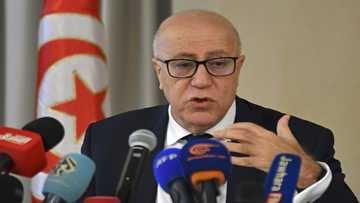Economic Crisis: Mass Layoffs Hit Banks And Insurance Companies Over Anticipated Difficult 2023
- Banks and other financial institutions are said to have started a redundancy exercise due to an anticipated difficult 2023
- Reports say some banks have already informed their staff that they will soon work on contract basis or be sacked
- The debt exchange programme announced by the government has been blamed for the imminent layoffs
PAY ATTENTION: Enjoy reading our stories? Join YEN.com.gh's Telegram channel for more!
Some banks and insurance firms are laying off their staff over fears of a challenging 2023 in the financial sector, according to reports.
Accra-based 3Business has reported that two local banks have already told workers that they would be either be outsourced or sacked.

Source: UGC
The report also disclosed that many other banks have notified their staff about an imminent downsizing exercise.
“We have no choice but to reduce our numbers in certain areas to help cut the cost of operations. We must be prudent with our resources looking at the mounting economic uncertainty,” 3Business quoted a senior executive at an unnamed bank.
PAY ATTENTION: Follow us on Instagram - get the most important news directly in your favourite app!
The anticipated difficult year for the financial sector and the layoffs have been blamed on government's debt exchange programme.
On December 5, 2022, government announced the Domestic Debt Exchange programme, an initiative that invites investors to enter a voluntary exchange of approximately GHS137 billion of the domestic notes and bonds.
The government admitted that there could be potential impact of the Debt Exchange for banks, specialised deposit-taking institutions (SDIs), insurance firms, asset managers, collective investment schemes, pension fund trustees, and regulated pension schemes.
The government also promised to roll out a system to mitigate the potential impact of the programme.
IMF Bailout: Government, Fund Attain Staff-Level Agreement
Meanwhile, the domestic debt exchange programme is largely regarded as one of the outcomes of Ghana's negotiation with the International Monetary Fund (IMF) for a $3 billion bailout deal.
YEN.com.gh has reported that Ghana and the IMF reached a staff-level agreement on the upcoming $3 billion Extended credit facility in December 2022.
The staff-level agreement is subject to IMF Management and Executive Board approval and receipt of the necessary financing assurances by Ghana’s partners and creditors.
Ghana applied for a $3 billion ECF from the Bretton Woods institution to correct balance of payment anomalies and unsustainable debt situations.
New feature: Сheck out news that is picked for YOU ➡️ find “Recommended for you” block on the home page and enjoy!
Source: YEN.com.gh



